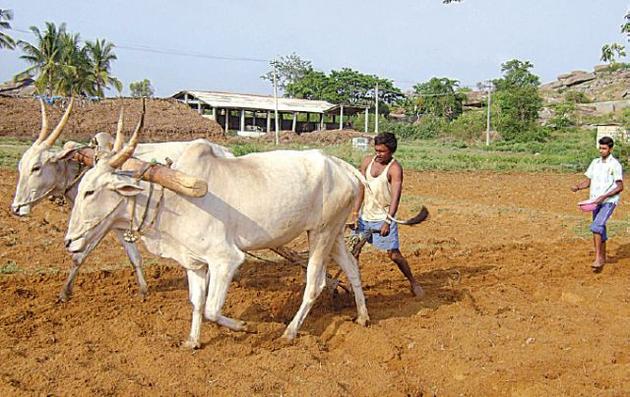HUBLI, September 29, 2013: Even as agricultural scientists are trying to improve the yield and develop pest-resistant varieties, several farmers have achieved better yields and healthy crops using indigenous methods. And these indigenous methods are practised in a particular region and most often are not passed on to the next generation or to the farmers in other regions.
But now the Karnataka Folklore University at Gotagodi in Haveri district has embarked on an ambitious project of documenting these indigenous farming methods practised in the southern States and bringing out an encyclopaedia on what it calls native farm science.
The “Encyclopaedia on South Indian Native Agricultural Knowledge Systems” will have information on the native farming techniques from Karnataka, Tamil Nadu, Andhra Pradesh and Kerala. A team of experts from Karnataka are engaged in preparing the content to be published in two volumes in Kannada. The English version is to come later.
“Farmers followed indigenous methods to get better yield and quality crops. The ‘indigenous farm science’ of southern India dates back to the Harappan civilisation and there has been mention of it in the ancient texts,” says S.C. Ramesh, university Registrar (Evaluation), who is the editor of the encyclopaedia.
The research and compilation of techniques assume importance in the backdrop of growing importance of organic farming and such an encyclopaedia would be handy for farmers, Prof. Ramesh said. University Vice-Chancellor Ambalike Hiriyanna is the Principal Editor and retired professor from Mysore University R.V.S. Sundaram is its executive editor.
“Our effort is to recall the forgotten native farming methods where the focus was on cultivating healthy foodgrains. We have documented them and there will also be district-wise survey reports on native farm science,” Prof. Sundaram said over telephone.
Index
The encyclopaedia will also have an index on scientific names of different species and also the native names in Kannada, Telugu, Tamil, Malayalam, Kodava and Tulu languages.
“Already, work on nearly 600 pages of the encyclopaedia has been completed and the work on getting the articles on native farm science from other languages is under way. It will take another three months for the encyclopaedia to be ready,” Prof. Sundaram said.

